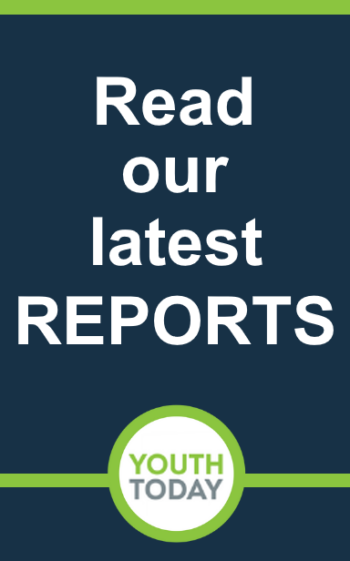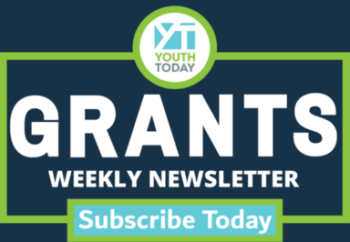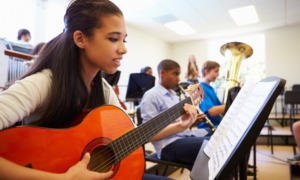In the 1980s, when the Robert Bowne Foundation (RBF) began focusing on OST youth literacy education, there was little or no recognition of the professional field now known as Out-of-School Time education. The lack of recognition began to change during the 1990s, with such initiatives as the:
- Launch in 1991 of New York City Beacons, public-school-based community centers offering a range of activities for individuals of all ages, including after-school programs;
- Founding in 1994 of the Partnership for Afterschool Education (PASE), with initial funding from the RBF;
- Founding in 1998 of The Afterschool Corporation (TASC) with initial funding from the Open Society Institute. (Read and download the Institute for Education and Social Policy’s brief on public funding for afterschool programs 1998-2008);
- Initiation in 1999 of Federal funding for afterschool programs through the 21st Century Community Learning Centers. By 2009, both the New York State Education Department and the New York City Department of Youth and Community Development (DYCD) had established programs to fund OST youth programs.
The RBF contributed to these efforts by sponsoring research and publications focused on the emerging field. In 1998, then Executive Director Dianne Kangisser funded Eileen Lyons of Interfaith Neighbors and Susan Ingalls of Foundation for Children and the Classics — to produce the inaugural issue of the journal Afterschool Matters.
The goal was to publish articles by practitioners as well as academic scholars to support professionalization of the field and reach a national audience. It soon became clear that practitioners needed support to research and write, and it was difficult to identify authors and solicit articles from practitioners. Executive Director Lena Townsend and Sara Hill, as a result, created the Afterschool Matters Initiative to generate inquiry and writing to ‘feed’ the journal. The goals of the Initiative were to:
- Generate and disseminate research about community-based organizations serving youth during the out-of-school hours;
- Build a network of scholars studying community-based organizations serving youth; and
- Contribute to basic knowledge and the improvement of practice and policy in the area of community-based youth programs.
Together with RBF Research Officer Sara Hill, Townsend began to address this agenda by establishing: (a) the Afterschool Matters Practitioner Fellowship and (b) a year-long Institute (beginning in 2002). These both supported afterschool practitioners in articulating research questions, collecting data, and then shaping their data into articles for publication.
In an October 2013, interview Townsend describes the impetus for the initiative:
“I came to believe that youth practitioners should shape their own field. The field was being shaped by all sorts of others — researchers, academics, politicians, funders — many of whom had never worked with youth. Youth practitioners are very important for shaping the field. One way we have attempted to make that happen is through the Fellowships.”
By 2003, RBF had launched a comprehensive Afterschool Matters Initiative that included:
- Publication of the Afterschool Matters journal;
- Publication of Afterschool Matters Occasional Papers;
- Afterschool Matters Research Fellowships;
- Public Roundtables for Fellows to present their research; and
- Edmund A. Stanley, Jr., Research Grants that were awarded nationally to academic researchers in the OST field.
Two years later, in 2005, RBF Research Officer Sara Hill successfully proposed the establishment of an afterschool Special Interest Group (SIG) of the American Education Research Association (AERA). The aim was to raise the profile of the OST field as well as to engage and link researchers throughout the country to address the need for more research and dissemination of findings.
In addition, the RBF gained greater national visibility and reach by:
- Forming a National Advisory Committee for the Afterschool Matters Initiative;
- Building a network of scholars studying community-based organizations that serve youth;
- Developing both the research and writing capacity of practitioners working with youth; and
- Contributing to basic knowledge and improvement of practice and policy among community-based youth programs.
In 2007, RBF identified the National Institute on Out-of-School Time (NIOST) at the Wellesley Centers for Women as a national site to continue the Afterschool Matters Initiative, including publication of the Afterschool Matters journal and occasional papers, conducting a National Afterschool Matters Initiative Practitioner Fellowship Program in collaboration with the National Writing Project, as well as to administer the Edmund A. Stanley Jr. Research Grants.
LINKS:
- Video: Robert Bowne Foundation Executive Director Lena Townsend and Program Officer Anne Lawrence discuss the origin, purpose, and impact on the field of the Afterschool Matters journal.
- Website: Afterschool Matters Initiative
- Institute for Education and Social Policy brief on public funding for afterschool programs 1998-2008



















